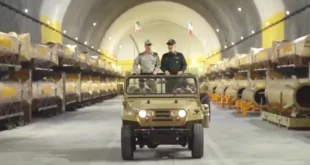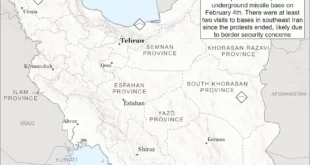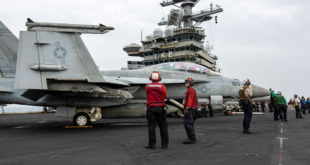Iran’s incoming president Ebrahim Raisi, who will be sworn in on Aug. 5, has made many promises regarding economic issues — surpassing 50 in total so far. Although his electoral platform lacked any details clarifying how he would fulfill his promises, they still symbolize more than 50 problems and challenges that the incoming government will face. Some are related to the continuation of US sanctions, while others are unrelated and will continue even if the sanctions are lifted.
Most of Raisi’s election campaign promises revolved around economic crises such as unemployment, inflation, housing problems, depression, the suspension of production, oil exports, and the US sanctions. His promises included: Creating a million jobs per year, reducing inflation to a single-digit figure (rather than the current soaring rate of nearly 50 percent), increasing the economic growth rate, resolving the problems of non-operational factories, boosting non-oil exports, focusing on exports to neighboring countries, resolving the problem of high rent and scarce affordable housing, reducing the poverty rate, and eliminating corruption. The lifting of sanctions is a key axis of his foreign policy.
Some of the economic challenges facing the Raisi government are closely intertwined with the US sanctions, such as the rising prices of food and medicine, the budget deficit, and low economic growth. When sanctions are lifted, Iran will be able to import all the food, medicine and raw materials that are needed for domestic production. This will automatically lead to declining prices, as freight and insurance costs will fall.
There is no doubt that economic growth will recover when exports of oil and different minerals resume. Iran’s exports are its primary locomotive for economic growth and a principal source of the government’s budget, which currently suffers from a massive deficit that will continue to increase as long as sanctions remain in place. As soon as the sanctions are relieved, Iran will be able to release nearly 200 million barrels of oil and oil derivatives held in storage in its territorial waters and overseas — specifically in China. Doing this will enable Iran to swiftly inject billions of dollars into its budget, even if the oil is sold at below market value. There is no doubt that the country’s public sector firms and some Islamic Revolutionary Guard Corps (IRGC)-affiliated companies working in the petrochemicals, minerals and automobile sectors will take advantage of sanctions relief.
Meanwhile, as with the present government, the budget deficit will be among the main challenges facing the Raisi government, with the deficit standing at nearly 450 billion tomans (more than $107 billion according to the official exchange rate) in the 2021 budget. This colossal deficit prompted the current government under President Hassan Rouhani to introduce a value-added tax of 9 percent — after years of postponing such a move — which will take effect as of next January, meaning implementation will be deferred to the Raisi government’s tenure. This policy is not consistent with the orientation of Raisi and his peers in the hard-line movement, as it usually foments discontent within society.
Even if the US sanctions are lifted, the shortage in funding will continue to pose a serious challenge to Raisi. He may need years to bring the situation under control, especially given the hard-liners’ inclination to increase spending in an attempt to regain popularity with the public. If reaching an agreement with the US continues to be delayed, the Raisi government will need to resort to debt financing or excessive liquidity to pay wages and operate facilities; although this move would hike inflation rates even further.
Raisi’s hard-line government will have additional options, such as using the funds allocated to Iran’s religious institutions and the IRGC. In addition, the government could potentially sell assets to them or they could be asked to make investments while postponing their dues. Indeed, over the past few days, calls have been mounting from Iranian academics who have declared their support for policies of this nature. These policies were discussed in detail in the economic section of Rasanah’s monthly report for June.
In general, the hard-line movement espouses a closed and government-controlled economic policy; this means the incoming government’s strategy will center on increasing the state’s role in public spending while crowding out the already-weak private sector. The government will also have reservations about cooperating with many Western investors, if sanctions are lifted, unless this is absolutely necessary, instead focusing on realignment and greater economic cooperation with Eastern and Central Asian countries, as well as some neighboring nations.
All these policies are in addition to the Raisi government prioritizing populist economic objectives and sloganeering to maximize public support, even if this means negative consequences in the long run or promises that cannot be fulfilled considering the actual situation. This applies to Raisi’s campaign promises, such as vowing to create 1 million jobs per year — a wildly unrealistic proposal that even the Rouhani government did not achieve before the reimposition of US sanctions and the subsequent flight of capital and investments from the country. A similarly implausible campaign promise was Raisi’s vow to eradicate corruption, one of the chronic structural problems that have plagued Iran since the earliest days of the revolution and for which any real reform requires root-and-branch restructuring and an integrated set of legal, ethical and economic solutions, not merely slogans.
Such populist promises are, of course, more based on popular appeal rather than on any systematic foundations and principles, including actual plans for their execution. This is no surprise in Iran, with similar sloganeering being a standard practice of Supreme Leader Ali Khamenei, who announces hollow economic initiatives of this nature every Persian New Year. These are given grandiose titles such as the “Year of Production Leap,” the “Year of Resistance Economy” and similar slogans, none of which have any impact on the ground.
It is predictable, therefore, that we will continue to see such slogans repeated by Raisi’s government in the coming years. It is also expected, with clerics already wresting control of all the authorities in the country, that IRGC-affiliated institutions and religious institutions associated with the supreme leader will wield far greater economic power and influence, not only domestically but also overseas in an attempt to implement and spread the theocratic regime’s revolutionary doctrine across the region. In short, the Raisi government will establish and promote a wholly theocratic, ideologically centered political and economic system to serve the objectives of the incumbent clerical regime.
 Eurasia Press & News
Eurasia Press & News



